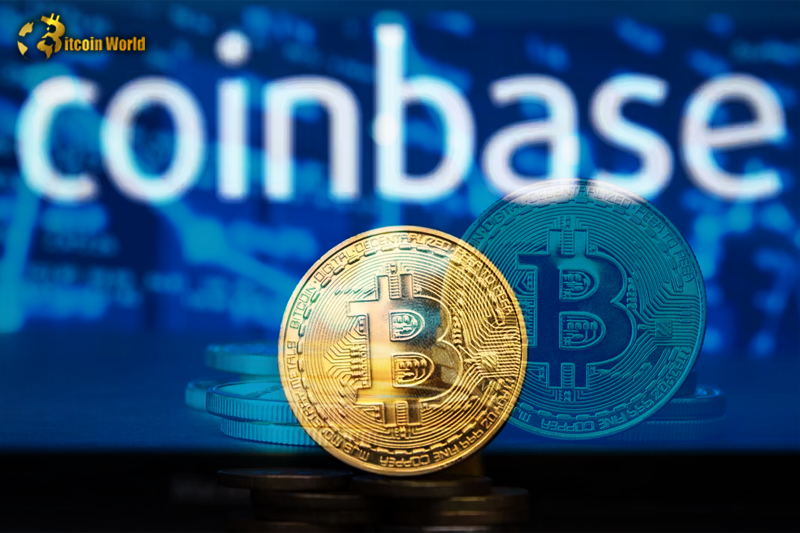In the fast-paced world of cryptocurrency, rumors can spread like wildfire, often fueled by social media buzz. Recently, whispers of Coinbase imposing strict weekly withdrawal limits on Bitcoin (BTC) began circulating, causing concern among users. But is there any truth to these claims? Let’s dive into the heart of the matter and separate fact from fiction regarding Coinbase’s Bitcoin withdrawal policies.
Are Coinbase Bitcoin Withdrawal Restrictions Real? The Rumor Mill
Social media platforms became the breeding ground for these anxieties when a user’s post on October 24th went viral. The post claimed that Coinbase had quietly implemented a new policy, capping Bitcoin withdrawals at a mere $5,000 per week. This single post ignited a chain reaction, quickly amassing:
- Over 250,000 views
- More than 420 retweets
- Nearly 2,000 likes
Crypto researcher Chris Blec even amplified the conversation, seeking verification from the community. The sheer volume of engagement underscored the crypto community’s sensitivity to changes in withdrawal policies, which directly impact user access to their funds.
But before panic sets in, let’s hear directly from the source.
Coinbase Responds: Setting the Record Straight
Coinbase, the cryptocurrency exchange at the center of these rumors, wasted no time in issuing a clear and unequivocal denial. They vehemently refuted the allegations of a $5,000 weekly withdrawal limit on Bitcoin.
A Coinbase spokesperson clarified that withdrawal processes are indeed in place, but they are not arbitrary restrictions. Instead, they are “contingent on the chosen payment method for withdrawal.” This crucial distinction highlights that withdrawal limits are not a blanket policy but are tailored to various factors, primarily the method users choose to access their funds.
To get the definitive answer, Coinbase directed users to their official resources:
- Official Account Limits Page: This page details the specific limits applicable to different account levels and verification statuses.
- Withdrawal Policy: Here, users can find comprehensive information on Coinbase’s withdrawal policies, procedures, and any associated conditions.
By directing users to these official sources, Coinbase empowers individuals to verify the facts for themselves and understand the actual withdrawal parameters based on their accounts.
The Timing: Trading Hiccups and Market Volatility
Interestingly, these rumors surfaced during a period of heightened activity and some technical challenges for Coinbase. Around 6 pm UTC on October 23rd, Coinbase experienced what they described on their official status page as “difficulty in processing trades.”
While concerning, it’s important to note:
- Quick Resolution: Coinbase acted swiftly to resolve the issue, confirming within an hour that the problem was fixed.
- Ongoing Monitoring: The team diligently monitored trading activities to ensure there were no lingering effects from the initial disruption.
These temporary trading delays happened against the backdrop of significant market movement. Bitcoin’s price surged to $35,000, a level unseen since May of the previous year. This price surge indicates increased trading volume and market excitement, which can sometimes strain exchange infrastructure and lead to temporary glitches.
Why Do Rumors Like This Emerge? Understanding the Crypto Landscape
The rapid spread of misinformation, like the Coinbase withdrawal limit rumor, underscores a few key aspects of the cryptocurrency space:
- Decentralization Ethos: The crypto community values decentralization and distrusts centralized control. Any perceived restriction on fund access can trigger immediate concern.
- Social Media Amplification: Social media’s instant and widespread reach can quickly amplify unverified information, turning speculation into perceived fact.
- Market Sensitivity: The cryptocurrency market is highly sensitive to news and sentiment. Rumors, even unfounded ones, can influence market behavior and user confidence.
- Importance of Official Sources: In this environment, relying on official sources like Coinbase’s help pages and official communications is crucial for accurate information.
Actionable Insights: How to Stay Informed and Avoid Crypto Rumors
In the dynamic world of crypto, staying informed and discerning is paramount. Here are some actionable steps to navigate rumors and ensure you’re getting reliable information:
- Verify with Official Sources: Always cross-reference information with official sources. For Coinbase-related news, check their official website, help pages, and social media channels.
- Be Skeptical of Social Media Claims: Social media is a powerful tool but also a breeding ground for misinformation. Approach claims, especially sensational ones, with healthy skepticism.
- Follow Reputable Crypto News Outlets: Rely on established and reputable crypto news sources that prioritize fact-checking and journalistic integrity.
- Engage in Critical Thinking: Before sharing or reacting to information, take a moment to critically evaluate its source and plausibility.
- Understand Exchange Policies Directly: Familiarize yourself with the terms of service, withdrawal policies, and fee structures of the exchanges you use.
In Conclusion: Facts Over Fear in the Crypto World
The Coinbase Bitcoin withdrawal limit rumor serves as a potent reminder of how quickly misinformation can spread in the crypto space. While the initial post caused understandable concern, Coinbase’s prompt denial and clarification effectively debunked the speculation.
Ultimately, navigating the crypto world requires a balanced approach: staying informed, being vigilant, and always prioritizing verified information from official sources over unverified social media buzz. By doing so, you can confidently participate in the crypto revolution without being swayed by unfounded rumors and anxieties. Remember, in crypto, knowledge is not just power; it’s also peace of mind.
Disclaimer: The information provided is not trading advice, Bitcoinworld.co.in holds no liability for any investments made based on the information provided on this page. We strongly recommend independent research and/or consultation with a qualified professional before making any investment decisions.


